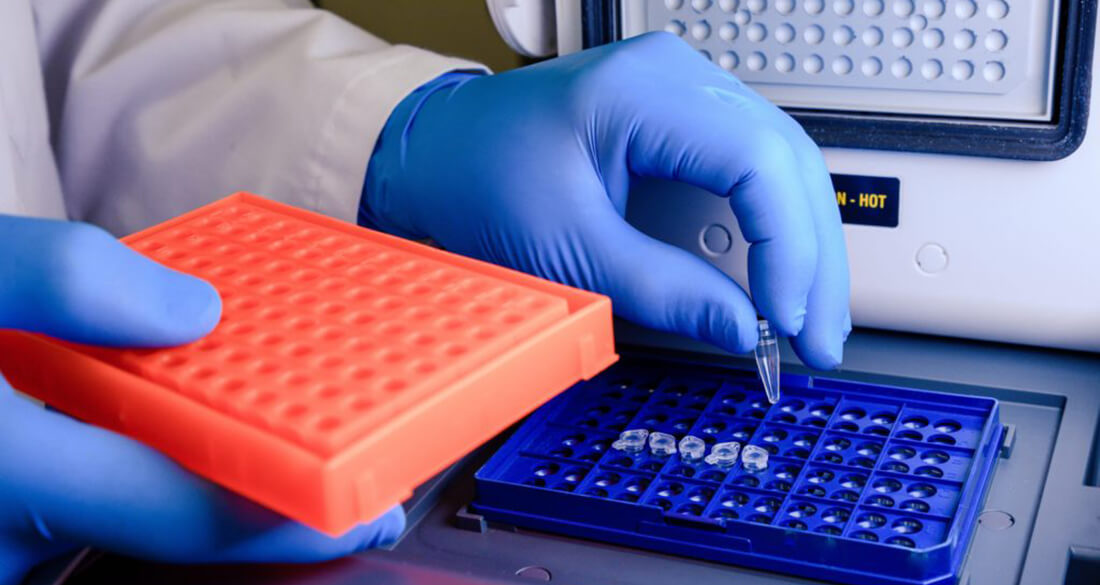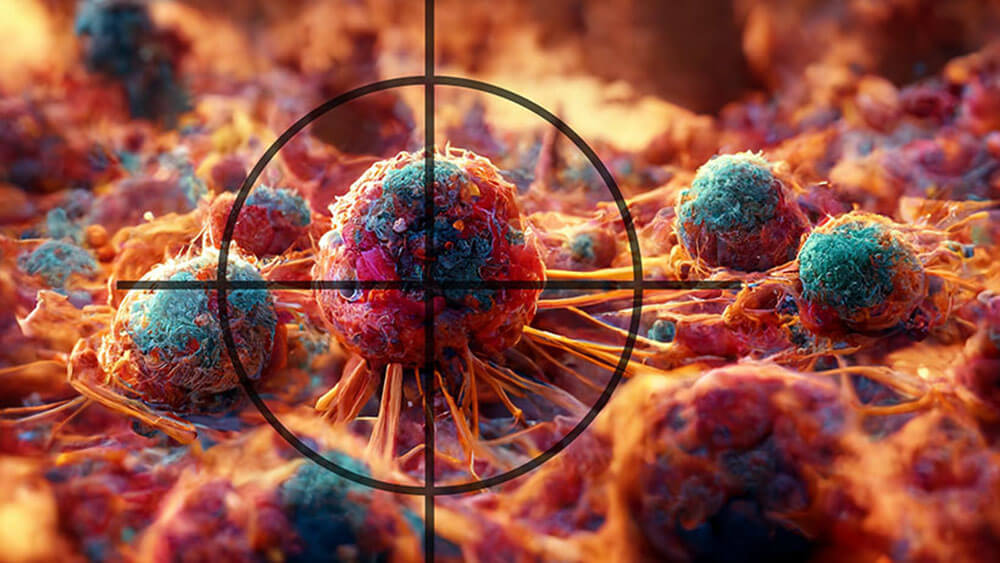Calls for Ukraine
Calls for Europe
Calls for USA

Adenocarcinoma is a malignant tumour that originates from glandular epithelial cells. These cells produce substances such as mucus, digestive juices or hormones. Because glandular tissue is widely distributed, adenocarcinomas can form in many organs, including the stomach, lungs, intestines (especially colon and rectum), pancreas, prostate, breast, ovaries, uterus, and others. Adenocarcinomas constitute a major subtype of gastrointestinal, lung, breast and genitourinary cancers. Personalised treatment based on histological and genetic characteristics enables more effective therapy.
Would you like a free consultation?
To choose the best doctor and sign up for a consultation at the clinic, leave a request on the MedTour website. The medical coordinator will help you choose a doctor and select the best clinic, taking into account your wishes.
Free consultation
Like all cancers, adenocarcinomas are dangerous because they can invade adjacent tissues, disrupt organ function and metastasise to distant sites. Without timely treatment, tumours continue to grow, causing progressive damage and potentially life‑threatening complications. Early detection and intervention are critical for improving outcomes.
Currently, the exact reasons why adenocarcinoma develops are unknown. However, according to numerous observations, there are factors that can provoke the appearance of a tumor of this type. These include:
Adenocarcinoma can develop anywhere where there is glandular epithelium. Malignant tumors of this type are found in the following organs:

At the initial stage of its development, this pathology, like many other cancers, does not manifest itself in any way. As adenocarcinoma grows, characteristic symptoms appear. What patients’ complaints will be depends largely on the location of the tumor. Common symptoms include:
Often there is an enlargement of the lymph nodes located near the location of the tumor.
Specific symptoms characteristic of adenocarcinoma of a particular organ also occur. For example, with adenocarcinoma of the stomach, nausea, vomiting, and stomach pain occur. Lung adenocarcinoma may cause coughing, hoarseness, difficulty breathing, and pain in the area where the lungs are located. Colorectal adenocarcinoma is characterized by diarrhea, mucous and purulent discharge from the anus, and pain during defecation. With endometrioid adenocarcinoma, uterine bleeding, aching pain in the abdomen, and an increase in the size of the abdomen may occur.
If the disease progresses, the symptoms increase, complications arise, and life-threatening disorders appear. Therefore, the sooner the problem is identified and diagnosed, the greater the chance of defeating the disease.
Would you like a free consultation?
To choose the best doctor and sign up for a consultation at the clinic, leave a request on the MedTour website. The medical coordinator will help you choose a doctor and select the best clinic, taking into account your wishes.
Free consultation
Adenocarcinomas are divided into types according to different criteria: shape, growth rate, structural features, location. So, depending on the type of fluid that the tumor secretes, there are:
According to histological characteristics, neoplasms of this type are divided into:
In well‑differentiated tumours, cancer cells closely resemble normal epithelial cells. These cancers grow slowly, rarely metastasise and often have a good prognosis when detected early. Surgical removal is often curative.
This form of the disease is considered transitional between highly differentiated and poorly differentiated. The moderately differentiated form has a more abnormal cell structure from a histological point of view than the highly differentiated variety. Tumors of this type can contain both cells similar to normal and cells that are noticeably different. This type of tumor is more aggressive than the highly differentiated form, develops faster and is less treatable.
The most dangerous type of adenocarcinoma, which is characterized by tumor cells that differ significantly from normal glandular epithelial cells. This type of tumor is characterized by rapid growth and the ability to quickly metastasize, which can occur throughout the body. It is quite difficult to treat this type of pathology.
Oncologists distinguish the following stages of the disease:
Life expectancy after diagnosis of adenocarcinoma depends on many parameters:
stage of the disease;
The sooner a tumor is detected and treatment is started, the greater the chance of completely getting rid of the tumor and living a long, fulfilling life. But even in advanced cases today there is an opportunity to resist the disease. The use of new effective treatment methods improves prospects even for severe variants of the disease.
Would you like a free consultation?
To choose the best doctor and sign up for a consultation at the clinic, leave a request on the MedTour website. The medical coordinator will help you choose a doctor and select the best clinic, taking into account your wishes.
Free consultation
Prognosis for adenocarcinoma varies depending on the stage of the pathology:
However, these are general indicators. Practice shows that the prognosis can be significantly improved if a personalized approach to treatment is applied. The MedTour platform will help you find specialists who can choose the most effective treatment for your case.
Would you like a free consultation?
To choose the best doctor and sign up for a consultation at the clinic, leave a request on the MedTour website. The medical coordinator will help you choose a doctor and select the best clinic, taking into account your wishes.
Free consultation

Oncologists select examination methods taking into account the organ in which the tumor has arisen. Most often, diagnostics include:
Analyzes for identifying mutations in tumor material deserve special attention. Thanks to genetic testing of the material, it is possible to determine both hereditary and somatic mutations. This makes it possible to personalize therapy and choose more effective treatment tactics.
Such studies today can be done in specialized laboratories, which conduct a wide range of studies for various types of malignant diseases. The use of molecular profiling for various genes associated with cancer allows accurately determining the mutation, and then selecting a targeted drug that will most effectively affect a specific type of cancer cell. You can find out where to undergo such studies from the MedTour coordinating doctor.
Would you like a free consultation?
To choose the best doctor and sign up for a consultation at the clinic, leave a request on the MedTour website. The medical coordinator will help you choose a doctor and select the best clinic, taking into account your wishes.
Free consultation

To treat adenocarcinoma, oncologists use various methods that can be used in combination or independently. The standard and most commonly used methods of cancer therapy include surgery, chemotherapy, and radiation therapy.
Surgery is often the first-line treatment for localised adenocarcinomas. Procedures vary by organ: colectomy for colorectal cancer, mastectomy or lumpectomy for breast cancer, pancreatectomy for pancreatic cancer, prostatectomy for prostate adenocarcinoma, among others. Surgeons aim to remove the tumour along with surrounding tissue and lymph nodes to minimise recurrence. Minimally invasive and robotic techniques can reduce recovery time.
Chemotherapy employs systemic agents to destroy rapidly dividing cells. Common regimens differ by cancer type – for example, fluorouracil, oxaliplatin and irinotecan for colorectal cancer; platinum compounds for lung adenocarcinoma; gemcitabine and nab‑paclitaxel for pancreatic adenocarcinoma; and taxane‑based regimens for breast cancer. Chemotherapy may be used before surgery to shrink tumours, after surgery to eliminate residual disease, or alone in advanced cases.
Radiotherapy can be prescribed in combination with other methods of influencing the disease. Before surgically removing a tumor, doctors may prescribe radiation therapy to shrink the tumor. After surgery – to eliminate single malignant cells that might remain.
In addition to standard radiation therapy, the CyberKnife system is also used today. It has a more powerful and effective effect on tumor cells. CyberKnife can be used for non-surgical treatment of cancer in hard-to-reach places where it is difficult to carry out standard surgical interventions.
There are other powerful new methods that allow oncologists to personalize treatment, which gives better results in the fight against cancer.
Emerging therapies include photodynamic therapy, radiofrequency ablation, cryoablation, high‑intensity focused ultrasound (HIFU) and transarterial chemoembolisation. Personalised precision medicine—combining genomic profiling with targeted and immunotherapies—is transforming adenocarcinoma treatment. Participation in clinical trials offers access to cutting‑edge therapies.

The drugs used in standard chemotherapy affect cells throughout the body, not just cancer cells. As a result, the functioning of organs and systems is disrupted, and with large doses, severe side effects can occur. Targeted therapy is a more effective and gentle type of chemotherapy. In this case, doctors select substances that have a targeted effect on cancer cells, destroying them. In this case, the cells of healthy tissues are practically not affected.
Today, more and more targeted drugs are being invented that act on specific types of malignant tumors. In order to select the right targeted drug, it is necessary to do special genetic tests and identify certain mutations in genes.
We will help you find a medical facility where you can do high-quality genetic testing and choose the most effective treatment tactics with effective targeted drugs.
Immunotherapy in oncology is aimed at activating one’s own immunity to fight cancer. One of the areas of immunotherapy is the use of cancer vaccines. This is another facet of a personalized approach. Today, vaccines are produced for this purpose, which are created individually based on the cells of a specific tumor. Such cancer vaccines are called autovaccines. They can be used in conjunction with other therapies, are well tolerated and significantly improve the effectiveness of cancer treatment.
Also, the autovaccine can be used after completion of treatment to prevent relapse and metastases of adenocarcinoma. But to obtain the drug, a sample of tumor tissue is required.
If you don’t have a sample, you can use a xenovaccine, which is made using animal-derived fetal proteins. It also demonstrates high efficiency and reduces the likelihood of relapse.
For more information about cancer vaccines, please contact us.
Would you like a free consultation?
To choose the best doctor and sign up for a consultation at the clinic, leave a request on the MedTour website. The medical coordinator will help you choose a doctor and select the best clinic, taking into account your wishes.
Free consultation
On the MedTour platform you can find the best clinics for the treatment of adenocarcinoma of various organs. We cooperate with cancer centers from around the world, and we know where the leading specialists in the treatment of a particular disease work. On our website you can find information about leading oncology clinics, read about their treatment methods, treatment features, and see the cost of the most popular procedures. We work with such well-known medical centers as:
You can independently view the entire list of clinics that treat cancer on our website. For more detailed information about clinics, treatment methods and prices for their services, contact us.
Would you like a free consultation?
To choose the best doctor and sign up for a consultation at the clinic, leave a request on the MedTour website. The medical coordinator will help you choose a doctor and select the best clinic, taking into account your wishes.
Free consultation
MedTour will help you find specialists who are considered the best in the field of treatment of various malignant diseases. We will find you a doctor who specializes in your disease, uses the latest treatment methods and has a good reputation.
The MedTour coordinator will advise you on doctors and help you make the best choice. Contact us to learn more about all treatment options and options.
Would you like a free consultation?
To choose the best doctor and sign up for a consultation at the clinic, leave a request on the MedTour website. The medical coordinator will help you choose a doctor and select the best clinic, taking into account your wishes.
Free consultation
Please rate the work of MedTour
